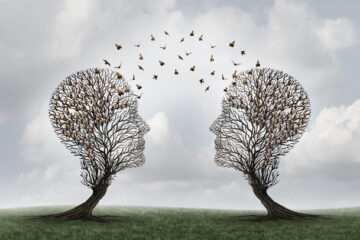History states the protectorat in Morocco started in 1912. It actually began from 1830. Indebted, threatened, overwhelmed, the sultans (Moroccan kings) preferred to abandon the kingdom rather than abandon the throne.
When wind blew from the north
So we are in 1830, in the heart of this century where the face of the world is changing. While the industrial revolution and economic growth are gaining speed in the Western world, Morocco lives in isolation, closed, jealously folding on itself. From the inside, the country is boiling, subject to a mad political instability. The prevailing anarchy makes the old empire look like a man on the verge of a nervous breakdown. The sultans follow each other at a frantic pace. In a century, since the death of Moulay Ismaïl, the country has known no less than 20 reigns. Some sultans have reigned only for few months, while others have been able to abdicate before returning to their throne several years later, thanks to coups and alliances. Sultan Abdullah II thus accumulated six kingdoms interspersed with so many interludes.
The country is divided in two: the bled Makhzen (plains, harbors, big cities) subjected to the authority of the sultan, and the bled Siba (mountains). The borders between the two Moroccos fluctuate according to the frequency and the range of the harkas; the punitive expeditions led by the Sultan in person.
The organisation of social life is based on rules inherited from the Middle Ages. Agriculture, livestock and crafts constitute the bulk of economic activity. The volume of internal trade is low because of the difficulty of transport: the roads are non-existent and the insecurity is such that the country looks like a set of enclaves. Displacements are slow, expensive and extremely dangerous. The cities function practically under a diet of food autonomy and the countryside is controlled by the local tribes. Social life is also punctuated by cycles of famine and epidemics. The teaching is reduced to its simplest expression (the religious) and remains confined to the madrassas-mosques. And there is no medicine other than the traditional one, based on herbs and miracle products.
Colonisation: guideline
Morocco of the 1800s, which was completely disarticulated and unable to get back into order at the time, has tremendously sharpened the appetite of its European neighboors, or of the whole Western world. It’s not for nothing that, when debating the “Moroccan problem” in 1880 in a conference in Madrid, during which twelve Western countries, are represented. Next to the immediate neighbours of France and Spain are countries like Austria, Norway, Italy and even the distant United States. All rushed to Madrid in an attempts to share at best the Moroccan cake. Morocco, the first party concerned, is ironically, under-represented and arrives, the conference day, without any concrete proposal and ready to ratify what the foreign powers will have proposed to the country. The historian Henri Terrasse writes in this regard: “The Belgians founded economic enterprises in Morocco, the United States thought to be ceded the islet of Perejil, Germany began by funding the explorations of Rohlfs and Lenz and, under the color of a peaceful establishment, planned to increase its place in Morocco.”
Traditionally, European penetration has involved three instruments. The sociological exploration through exploratory missions, first in the north and along the coast, then in the deep country, allowed to establish a fluoroscopy as faithful as possible of Moroccan society. The economic supremacy allowed to create a new local order and to subjugate the kingdom to a consortium of European banks. And the military strikes destroyed the few pockets of resistance and made the sultans (kings) listen to reason.
The misfortune of the kingdom was that its decadence coincided with the emergence of a new ideology: colonialism. This was the heavy trend of the time. To the point that even an intellectual above all suspicion, like the poet Victor Hugo, splits a famous phrase: “God offers Africa to Europe. Take it. Solve your social issues, change your proletarians into owners. “
France-Spain: two soldiers for the kingdom
If the wind of colonialism has carried away reasonable people and brilliant humanist minds, giving rise to appalling theories of racial inequality, it is because it has always draped itself in a civilising mission. Colonising, is to develop (the coloniser). The concept is a national doctrine in all newly industrialised European countries. To put the pill to the few recalcitrant, the idea is then to exaggerate the features of the future colony, portrayed as a rich but untapped country, dominated by barbarians without faith or law. The recipe works and public opinion espouses the views of its leaders.
After having long fought on the veto of Britain and Germany, France and Spain are taking advantage of the internationalisation of the Moroccan problem to permanently occupy the ground. The fruit sheriff is ripe, it threatens to fall at any time in the late 19th century. The sultans (Moroccan kings) have accumulated enough debt with European banks: to pay the tribute of lost wars, compensate for the drying up of the fiscal windfall and maintain their glitzy lifestyle (Moulay Abdelaziz, who ruled between 1894 and 1908, even set unnecessary expense records). Economic bankruptcy alone justifies the sealing of the Moroccan administration.
France and Spain logically share the kingdom in a kind of concession-delegation offered by all the Western powers. If Germany and Great Britain finally abdicate in favour of their two southern neighbours, it is with the guarantee that France and Spain secure commercial channels on Moroccan soil. In short, a developed Morocco, with safe roads and modern means of transport, is the surest way to offer the economic added value so much desired by Europeans.
It is this scheme that led Morocco, after several centuries of independence, to give up officially in 1912. Already on the ground, hands and feet bound, the double protectorate imposed on it appears even, ironically, as the only way to “save” it.
Source: Adaptation of “Comment le Maroc a été vendu’, published on Telquel.ma



